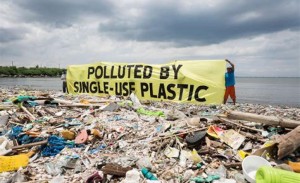From an Article by Michael Tanenbaum, Philly Voice, December 12, 2019
Philadelphia City Council passed a bill Thursday that will ban retailers from providing customers with single-use plastic bags, ending a 12-year effort to enact the environmentally minded legislation.
The ban spearheaded by Councilman Mark Squilla, who pushed for it previously on four separate occasions, would take effect July 2, 2020, pending the final signature from Mayor Jim Kenney.
Businesses affected include supermarkets, convenience stores, service stations, department stores, dollar stores, clothing stores, restaurants, food trucks, farmers’ markets, dry cleaners, and delivery services
Despite an attempt to also impose a 15-cent fee for all other single-use bags – such as paper and heavier plastic bags – provided by businesses to customers, that provision was ditched when other council members argued it would disproportionately impact the city’s poorer residents.
The law is intended to both reduce waste and save the city money. Philadelphia spends between $9 million and $12 million a year cleaning plastic bag waste from the streets, sewers, and bodies of water.
“Philadelphia uses approximately 1 billion single-use bags every year, and most of those are plastic,” said Joseph Otis Minott, executive director of Clean Air Council. “These bags litter our communities and cost taxpayers millions of dollars every year to clean up. Although this bill is long overdue and misses a very important fee component, we are very pleased that City Council has finally started to address the chronic, and devastating litter problems the city faces.”
Environmental groups withdrew support for the bill when the 15-cent fee was dropped, claiming the ban would be far less effective if customers faced no penalty for not bringing a reusable bag.
The bill does include a study on the outcome of the program to determine whether it needs to be adjusted, potentially by adding a fee at a future date.
“By banning single-use plastic retail bags, Philadelphia has joined hundreds of other communities across the country in sending a message that we realize there is a plastic problem,” Minott added. “We hope that this law will be amended in the next session to include a fee on all other bags.”



{ 2 comments… read them below or add one }
Plastic Pollution, Our Oceans, Our Future on Vimeo
As Hawaii contemplates joining over 60 locations in the Unites States in banning the sale and distribution of single-use polystyrene (“Styrofoam”), 17 students from Hawaii examine the impact of plastic pollution on their beaches and envision a sustainable future for the world’s oceans.
https://vimeo.com/178666619
Ikea Is Replacing Styrofoam Packaging With Compostable Mushroom-Foam
Mushroom-foam is as cheap as Styrofoam, requires no fossil fuel, and creates no plastic pollution, biodegrading in your garden in just a couple of weeks
Ikea is switching to a new mushroom-based, biodegradable alternative to polystyrene (Styrofoam) packaging for its furniture and home decor.
Known as Mycofoam, the product is made of agricultural waste products like corn or hemp husks, oat hulls or cotton burrs and mushroom spores.
The agricultural waste is molded into the desired shape and then seeded with mushroom spores, which begin to sprout mycelium, the vegetative part of fungi that forms a web of hairlike roots that typically hold soil together, but in this case hold the packaging together.
The mycelium threads spread rapidly throughout the material, digesting and binding it into a durable, shock-resistant foam.
When the foam reaches a desirable consistency, it is heated and dried to stop mycelium growth, so it can be used to cushion and protect everything from glass and ceramics to electronics and furniture.
Once the packaging has served its purpose it can be “tossed in a lake to feed fish” or into your compost pile to fertilize your garden, says the video below. In these moist environments, Mycofoam is completely biodegraded in just a couple of weeks.
Styrofoam on the other hand takes thousands of years to decompose and harms countless animals and other organisms that ingest it in the process.
Created from waste products, the material requires no fossil fuel, making it just as cheap (and probably cheaper to make in the future) as polystyrene.
Hopefully Ikea’s idea will spread and all Styrofoam packaging will be replaced with “mushroom-foam.”
https://returntonow.net/2019/11/04/ikea-is-replacing-styrofoam-packaging-with-compostable-mushroom-foam/